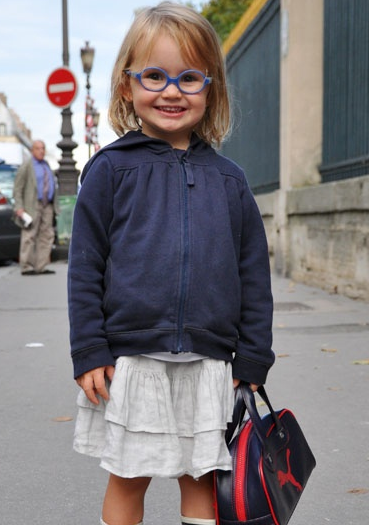6 Ways to Determine If Your Little One Needs Glasses
 Most pediatricians begin screening child vision when they are toddlers. In between visits, however, there are signs to watch out for that indicate that your child might need glasses. The following conditions often surface at middle school age. Read on for six ways to determine if your little one needs glasses.
Most pediatricians begin screening child vision when they are toddlers. In between visits, however, there are signs to watch out for that indicate that your child might need glasses. The following conditions often surface at middle school age. Read on for six ways to determine if your little one needs glasses.
Is Your Child Sitting Too Close?
Whether your child is reading, watching TV, playing computer games or drawing, if they are way too close to the screen, book, or paper, that may be a sign that he or she needs corrective lenses. Because sitting too close to the TV or screen can cause eyestrain, you should have his or her vision evaluated right away.
Does Your Child Complain of Headaches?
Chronic headaches are a telltale sign that your child may be straining his or her eyes. Excessive eye rubbing or tiredness are also signs of strain. This is especially true during the school years, when your child spends much of the day focusing and concentrating–tasks that can be tiring if his or her vision is strained.
Is Your Child Struggling at School?
Inability to see the blackboard can lead to learning difficulties, which can in turn lead to misbehavior and discipline issues. If grades have dropped or your child is getting a lot of notes sent home, schedule an eye exam and ask the teacher to move him or her to the front of the room.
Does Your Child Squint or Cover One Eye to See Better?
Either of these behaviors can indicate that corrective lenses could help your child see more clearly. Also check whether your child tends to tilt his or her head to one side when reading or watching television, a behavior that can indicate that one eye is stronger than the other.
Does Your Child Have Trouble with Sports?
Difficulty catching, hitting, or accurately throwing a ball might mean that your child has trouble seeing, especially if he or she is typically athletic and coordinated. If your child is school age, have him or her evaluated if clumsiness surfaces that was not previously present.
Does Your Child Have Difficulty Focusing or Following Objects?
Trouble with eye movement can indicate a problem with the muscles of the eye, which in most cases can be corrected with prescription glasses. This is also true if your child has a “lazy eye,” which tends to drift to one side or the other.
To protect your child’s vision, make sure to limit the time they spend watching TV and using the computer. These activities both cause eyestrain, which can lead to a variety of vision issues. If the answer to one or more of the questions above is Yes, consult your child’s pediatrician. He or she will perform a vision test and, if glasses are needed, refer your child to a pediatric ophthalmologist. These specialists focus on eye problems in children and teenagers, and can help advise you on your little one’s eye health.
Information credit to Eyeconx, an eye doctor clinic.
- What You Need To Know About Tamulosin - June 18, 2018
- Baby Walking the Walk: 5 Ways to Childproof Your Doors - June 5, 2014
- 6 Ways to Determine If Your Little One Needs Glasses - June 4, 2014


